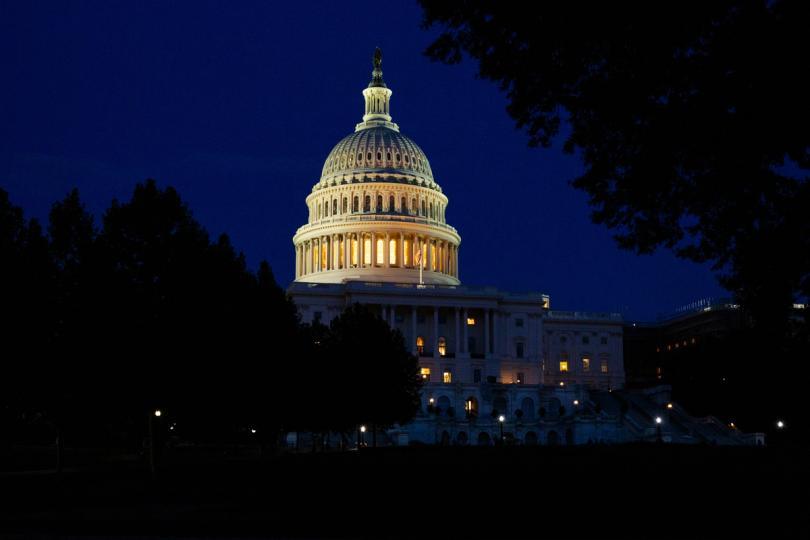The Senate Agriculture Committee released its crypto market structure bill Monday, bringing the body a necessary step closer to advancing its response to the House of Representatives’ clarity legislation to define how exactly the Commodity Futures Trading Commission can oversee trading in the spot market.
The bill, which still includes brackets indicating sections where lawmakers are not yet in full agreement on the details, marks a major step toward the government delineating where the CFTC’s jurisdiction ends and that of the Securities and Exchange Commission begins — a key question that only Congress can answer as these federal agencies step up their own efforts to issue guidance for crypto companies and other businesses hoping to offer crypto-related services in the United States.
Yet the bill is still just one step on the legislative path, and the Senate’s scope for action has been narrowed by other pressing issues, including the budget conflict that is currently bringing the federal government to a halt.
Senate staffers worked on the bill throughout the weekend, two people familiar with the situation told CoinDesk, even as lawmakers worked on a deal to end the ongoing U.S. government shutdown. This latest deal cleared a procedural hurdle Sunday evening, although the Senate — and House of Representatives — have yet to vote on the continuing resolution to fund the government.
The draft released Monday, led by committee Chairman John Boozeman and one of the panel’s top Democrats, Cory Booker, defines terms such as “blockchain” and how those concepts will apply under the Commodity Exchange Act; it directs the CFTC to engage in joint rulemaking with the SEC to address everything from margining of securities portfolios to how the agencies will supervise intermediaries.
Some of the bracketed sections include definitions of how this bill might interact with other laws. One section says the “minority view” — here referring to Democrats — is that lawmakers don’t think the Agriculture Committee has enough jurisdiction to address part of the law, but would like to work with the Banking Committee to do so.
Another bracketed section would direct the CFTC to have at least two commissioners from the minority party who would consult on their composition. The CFTC is currently led by a single interim president, Caroline Pham. President Donald Trump nominated current SEC Crypto Task Force advisor Mike Selig to take over as chairman, but he did not name any other commissioners.
In a statement, DeFi Education Fund Executive Director Amanda Tuminelli said: “We hope the section left open for DeFi will be supplemented with strong protections for developers that clearly distinguish centralized intermediaries from software developers without custody or control of other people’s money.
The Agriculture Committee oversees the CFTC, and the Senate Banking Committee, which has already released several plans, oversees the SEC. The two committees will have to advance their respective bills out of committee.
Before that, however, many lawmakers complained about the idea of simply moving to the markup stage — a formal process in which bills are open to amendments before being put to a final committee vote. Republicans on the Senate Banking Committee also face disagreements within their own ranks over the bill’s readiness, including from a highly critical Senator John Kennedy.
And while a large contingent of Democrats are eager to find common ground and pass a bill, others, including Sen. Elizabeth Warren, have raised continued objections to the risks posed by the crypto industry and the conflict of interest presented by President Donald Trump’s personal interest in the sector.
The common wisdom among crypto lobbyists and top lawmakers about how quickly market structure efforts could clear the Senate has changed several times, from the August deadline first set by Trump, to September, then this month, and most recently to the end of the year — if at all.
Negotiations have progressed in fits and starts, recently derailed for a time by a set of controversial proposals that industry insiders say would have threatened the fundamental elements of decentralized finance (DeFi). But recently, meetings between crypto CEOs and top lawmakers have put discussions back on track.
It could still take months for the bills to advance through committees and reach the Senate for a vote, however, said Ron Hammond, head of policy and advocacy at Wintermute.
“It is very possible that one or both committees will vote on their respective versions of the bill by the end of the year,” he said. “However, the next step will be to combine the bills and navigate the politics and different stakeholders.”
A Senate vote might not happen until the first quarter of 2026, “but a lot needs to happen before then,” he said.




